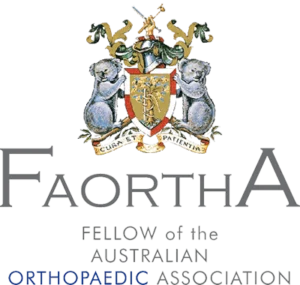Your arrival
The admissions officer will contact you the day before your surgery to advise what time to arrive at the hospital and relevant fasting information. Most patients will turn up 2 hours prior to surgery.
Before surgery
Prior to your surgery, Dr Marshall will meet you to check your consent form and to mark the limb being operated on. Now is the time to notify him of any changes to your condition or ask him any questions you have.
During this brief consultation, Dr Marshall will discuss the surgery again, your wound and dressing care, and when your follow-up appointment will be. This information will be written down on an information sheet and given to you on discharge. After your surgery, you will also see Dr Marshall in the Recovery Ward and possibly in the Day Ward.
What to take to the hospital
Your admission form if it was lodged electronically. This has your consent form attached to it and is extremely important for your surgery to go ahead.
Imaging (X-rays, MRI, CT and Ultrasound).
Health fund documentation.
What to wear
It’s a good idea to wear loose fitting clothing that can be easily put on over bulky bandages. While a locker will be provided for personal items, it’s best to leave all jewellery, watches and valuables at home. Ensure you have removed all make-up, nail polish and contact lenses (you can wear glasses to the hospital). We also recommend showering on the morning of the surgery. Special antiseptic skin wash is provided for some operations by our reception staff.
Getting home
Please arrange for someone to drive you home after your surgery. By law, you cannot drive a motor vehicle for 24 hours after an anaesthetic. If you haven’t arranged for someone to drive you, your procedure will not take place. Please also ensure that someone is with you for at least 24 hours after surgery.
Taking medication
Some medications, including diabetes, blood-thinning or immunosuppressant medications, should not be taken unless approved by your surgeon. This must be discussed beforehand. Any normal medications should be taken with a very small sip of water only.
Your recovery post surgery
It is important that you rest and take care of your wounds, particularly in the first week. This will help with pain relief and also wound healing. A script for pain relief will be given to you upon discharge from the hospital. Take only if required and as per dosage guidelines on the medication label.
Dr Marshall usually sees patients one week after surgery to check the wound and remove any sutures. This appointment is usually pre-made prior to your discharge from hospital. Other forms of therapy and splints may be required and these will be discussed at a post-op visit.
If you have any concerns, please contact our office.

